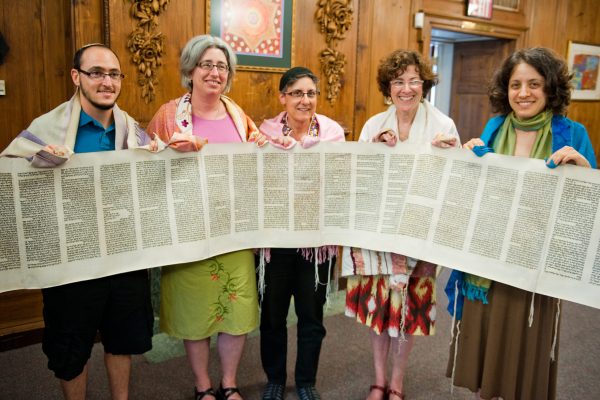“The primary purpose of prayer is not to make requests. The primary purpose is to praise, to sing, to chant. Because the essence of prayer is a song, and man cannot live without a song. Prayer may not save us. But prayer may make us worthy of being saved.” — Abraham Joshua Heschel
It’s easy to see prayer as a lifeline—a plea for help when life feels overwhelming. We ask for healing, for clarity, for change. But Heschel’s words offer a deeper, more poetic truth: prayer is not just a request. It’s a song. A praise. A chant. And in that song, we find something far more powerful than a quick fix—we find connection.
What a beautiful shift in perspective: we don’t need to approach G!d on our knees, begging for mercy. Yes, we are human, and yes, we make pleas. But it’s the act of praising through the storm that carries us through it. Praise is not the absence of pain—it’s the presence of faith.
This Yom Kippur, between services, I joined a roundtable discussion on the story of Jonah. One question stood out: “How do you relate to Jonah in different parts of the story?” Immediately, Heschel’s quote came to mind. At the end of Jonah’s journey, he’s angry with G!d—frustrated, bitter, pleading. But there’s no praise. No song. No gratitude.
We pray daily for things to get better. We show up to shul, hoping that traditional prayer will amplify our voice. But deep down, we feel unheard. We wonder if G!d is ignoring us.
And isn’t that often us?
I’ve been there. Just recently, I found myself in a situation I desperately wanted G!d to fix—immediately. It was a grueling couple of months. I came to shul with a heart full of demands, not devotion. I was frustrated. I felt invisible.
But our clergy are wise, and they guide us in ways we don’t always understand. One evening, something shifted. I remembered Heschel’s words. I went to shul not to ask, but to praise. I opened my heart. I sang. I chanted. I let go.
Two weeks later, everything changed. The situation that had weighed so heavily on me began to lift. I could breathe again. I cried that night—and I’m not a crier. But something in me had transformed. I had taken a meaningful step forward in my Jewish journey.
So here’s what I’ve learned: don’t approach G!d with a list of demands before you’ve offered your song. Praise first. Let that be your priority. The rest will follow.











